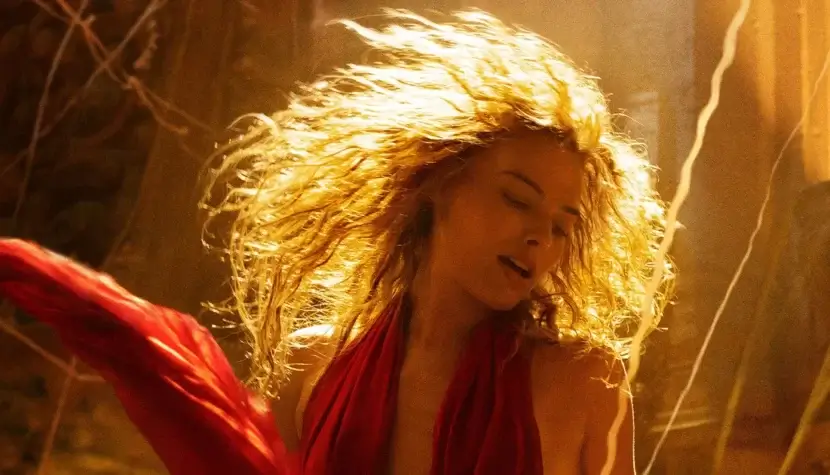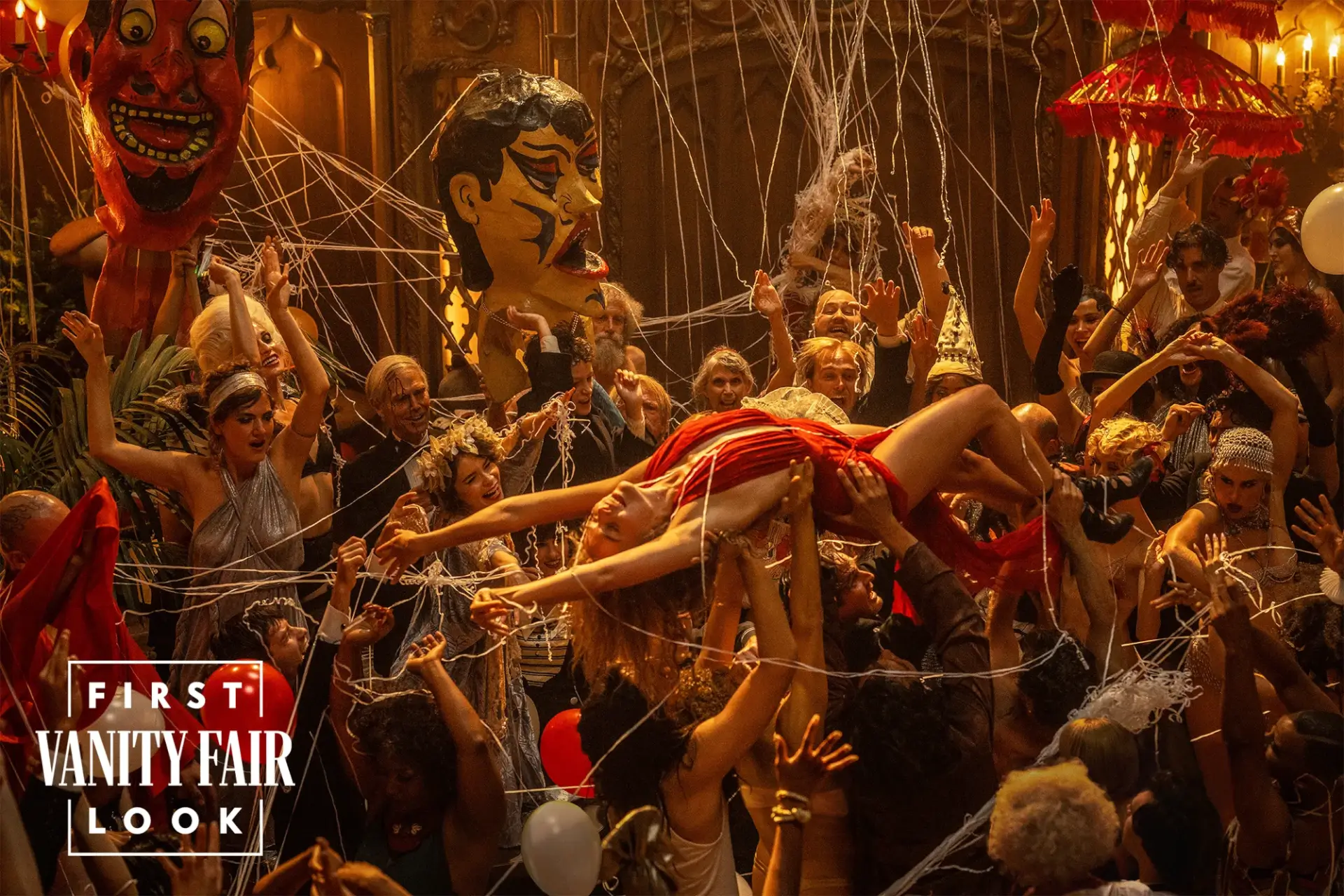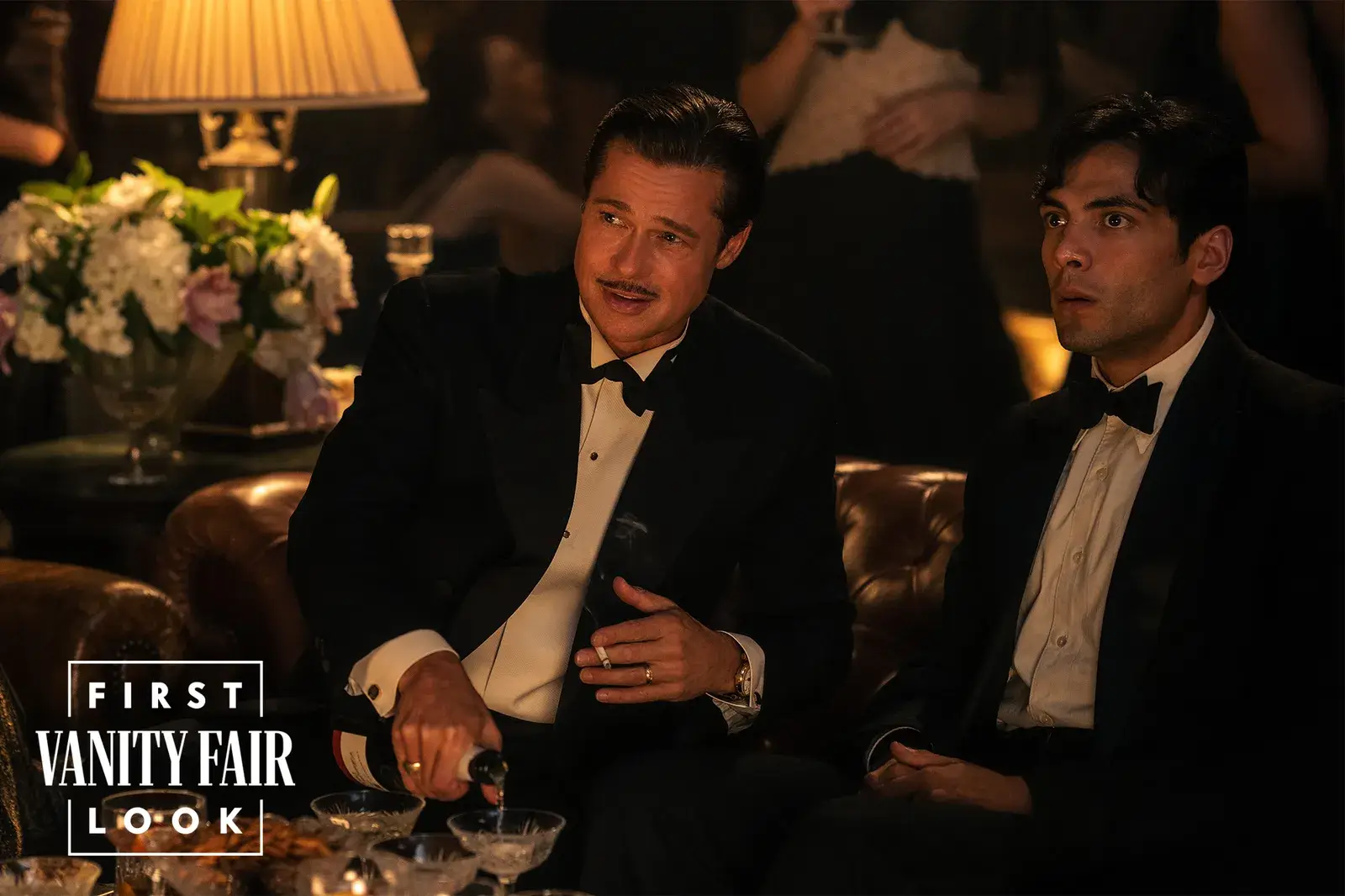BABYLON. Death and Resurrection

I have no idea where to start, because of how much is going on during over three hours in Babylon. Damien Chazelle’s new film is somewhat reminiscent of his own version of Once Upon a Time… in Hollywood, and even more a variation of Singing in the Rain, which the director had already winked at in La La Land. Stanley Donen and Gene Kelly put the clash of silent movie stars with the sound breakthrough in the formula of a wonderfully light technicolor musical. Chazelle serves a monumental mare, energetic and deadly funny at the beginning, but deadly serious in the end. In Babylon, debauchery pours out of the screen, corpses are piled high – the decadent fun continues. However, every party comes to an end.
It’s 1926. A movie producer’s mansion sags under a ton of balloons, white powder, and naked or semi-naked bodies wriggling to Justin Hurwitz’s aggressive and wild jazz-house music (crossing my fingers for his next Oscar). The camera dances at a speed that could make Martin Scorsese dizzy, and the editing chaff sometimes approaches a level that even Baz Luhrmann is ashamed of. Among the star-studded crowd, actor Jack Conrad (absolutely outstanding Brad Pitt) occupies a prominent place, eternally chasing after women and alcohol. Manny (Diego Calva, great in the first high-profile role) only works at the ball and enviously swallows the Hollywood bigwigs having fun. Nellie, unknown to anyone (Margot Robbie, expressive like never before), storms into the mansion and conquers the dance floor. They both dream of a great career and both get a chance from fate. All three of the main characters do not yet expect that the next few years will bring a real earthquake in the form of sound films and increasing repressions against “immorality”.
Before the turn of the 1920s and 1930s brought a series of regulations, with the famous Hays Code at the forefront and morality clauses written into actors’ contracts, the dream factory was shrouded in an atmosphere of unrestrained playfulness. The famous book Hollywood Babylon by Kenneth Anger is full of contemporary scandals, mostly untrue, but co-creating the myth of the characters appearing in them. We have no right to believe that Clara Bow actually had group sex with the entire football team – as Anger claims – but the first it girl was known for her sexual promiscuity and toughness. Apparently, at the unambiguous proposal of the producer B.P. Schulberga once grumbled that she had slept with everyone but him. Chazelle seems to have been listening carefully to Karina Longworth’s excellent podcast You Must Remember This, in which the author devoted a series of episodes to busting the myths created by Anger. Nellie is almost the perfect Bow, but instead of just seeing her as an adventurous and unconcerned nymphomaniac, Chazelle prefers to devote an entire scene to visiting her mother in a mental institution, adding to the character a very bitter subtext that the real Bow has also had to deal with all her life.

Although the inspiration is clear, Nellie is not Clara Bow, just as Jack Conrad is not John Gilbert, but at most a conglomerate of Gilbert, Douglas Fairbanks and a few others whose careers were ruined by sound. The world of Chazelle’s Babylon is inhabited by fictional characters, inspired by real ones, as well as the real ones: producer Irving Thalberg or William Randolph Hearst and Marion Davies who appear for a moment (and not so long ago in Mank). A bit like Anger’s book, Babylon consists of more or less savory anecdotes and gossip. However, Chazelle does not stop at excesses, he is by no means interested in tabloid preying on other people’s highs and lows. He portrays the Hollywood machine along with the tragedies of its human cogs. He also looks behind the scenes of production.
The bustle of a chaotic 1926 film set contrasts with the silence on the set of one of the first talkies. As long as Nellie hits the spot marked with a cross and says the line in a deep enough voice, and no one from the rest of the crew interferes with the recording of crystalline sound, it will be an eternity. Chazelle, who portrayed the hardships of the Whiplash hero with such fervor, would not be himself if he did not turn the camera towards Nellie’s sweaty legs. Working on a film set was not always idyllic, the director recalls. To limit machine noise, the camera operator sits in a tightly closed box and suffers from overheating. One editing cut is enough and we move to the ball, and the banner proclaims to all: “Long live the sound!”. This brilliant moment is the entire movie in a nutshell. In Babylon, there is an eternal carnival lined with tragedy, and the death of some gives life to others.

In Singing in the Rain or The Artist by Michel Hazanavicius, the drama of individuals sidelined by the sonic breakthrough does not resound, because it ultimately gives way to admiration for the new possibilities of the medium. The world of silent cinema is reduced to a kind of curiosity. In Babylon, a lively love for the art of film (including the modern one) goes hand in hand with deep respect for its personalities, who have long gone into the shadows. Jack Conrad is a tragic figure in the truest sense of the word. If Chazelle’s characters are always tearing themselves apart to meet the bar that they set themselves sky-high, then Conrad embodies the ultimate downfall. He’s going to the very bottom and there’s no way back to the top for him. He must acknowledge the passage of time and the fickleness of fate. But can you accept your own end?
In the best scene of Babylon, Conrad takes up the gauntlet for the last time. He clashes with a journalist who wrote a lampoon about him. In response to his pout, he hears that there will be a hundred such conversations in the future, because he or she means nothing. But in the end, he gets a few words of encouragement: “In a hundred years, someone will put a tape in the device and you will live again.” This someone is Damien Chazelle, who made a film that may be a bit chaotic and lose some interesting side plots along the way, but still beautiful, combining into one reflection on the durability of art and human transience. The cinema is probably the most perfect time machine we have at our disposal. Thanks to it, we can keep people who are going into oblivion with us. Chazelle, Pitt and Robbie do just that in Babylon: they honor their artistic ancestors, on whose corpses successive generations of Hollywood stars build their careers.

